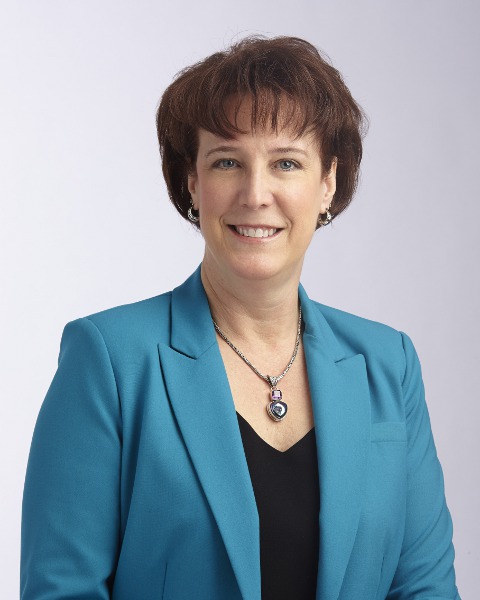 Nurses are the backbone of healthcare. They are care providers continuously on the front lines, serving a multitude of purposes and tirelessly working to better the lives of others.
Nurses are the backbone of healthcare. They are care providers continuously on the front lines, serving a multitude of purposes and tirelessly working to better the lives of others.
In fact, a recent Gallup poll found nursing is one of the most trusted professions by the public, with 82 percent of respondents rating the honesty and ethical standards of nurses as "very high/high."
While nurses are highly-esteemed by their peers and the general public, they still suffer from disengagement and emotional burnout.
"Many nurses are really holding back, and it isn't conscious on their part," says Martie Moore, RN, CNO of Mundelein, Ill.-based Medline Industries. "It's truly because of the demands they see. Many times they're overwhelmed and they feel that the jobs they are doing is difficult, so the ability to cope is challenging."
Given the physically, mentally and emotionally challenging requirements of the nursing profession, it isn't so surprising that the everyday work can begin to take a toll on the nursing workforce. Finding ways to develop nurse leadership and talent, empower the workforce and mitigate burnout requires stepping away from the traditional and adopting a more modern approach to the role of nurses in healthcare.
Nurse empowerment
Keeping nurses empowered is more than just leadership development; it is a patient safety and satisfaction concern. Nurse empowerment largely hinges on the infrastructure and communication design of an organization, according to Ms. Moore.
"Empowerment is about how you design the infrastructure or a system where the voice of the nurse can be heard," she says. "Empowerment is…creating that culture of safety where people feel they can speak up in a professional, respectful manner or share their concerns to where you're able to hear each other and listen to each other in a mutual and respectful way."
This type of empowerment allows nurses to grow their own personal practices and advance in their learning, Ms. Moore says.
Although communication improvement and development may be key to empowerment, it is often relegated as a "soft cost" and overlooked as a lesser priority.
"In tough times with limited resources, some may have a tendency to not put resources toward [communication]. I would challenge the industry that investing in communication skills training is one of your best investments, and it could save you in potential safety issues or employee safety issues," Ms. Moore says.
Nursing leaders of tomorrow
By nature, the healthcare industry is one that is constantly evolving. As such, nursing leaders also have to adapt to the changing landscape. When developing nursing talent and leaders, Ms. Moore says hospitals have to keep an eye ahead of the curve, anticipating what is coming next.
"The very first thing we have to do is step back and look at the attributes that are going to be needed for the healthcare environment ahead of us," Ms. Moore says, and she sees a need for innovation and forward-thinking.
"Nurses willing to take risks and leaders willing to try those wild ideas may find merit in innovation and experimentation," Ms. Moore says. "Giving those emerging leaders the opportunities to try those leadership skill sets is going to be critical. We can't do it in our traditional ways."
Ms. Moore says the types of nursing leadership roles and the way those roles are developed are going to be more focused on nurses moving through the continuum of care and understanding patients in multiple care settings as opposed to a leadership structure based on an isolated acute-care setting.
Addressing nurse burnout
The implications of nurse burnout run much deeper than emotional, physical and mental output, and the causes are more integrated in healthcare processes than just the personal demands of the job.
For one, regulatory oversight adds an extra, albeit necessary, burden for nurses.
"The challenges they face with increasing bureaucracy and paperwork is placed upon them to assure that all the regulatory points are met," Ms. Moore says.
These regulatory requirements are not only burdensome, but they detract nurses from being present in their work, Ms. Moore says.
Furthermore, the interpersonal connectedness of the nursing profession exposes nurses to every emotion on the spectrum on a daily basis.
"Nurses, in a day's work, know the most intimate things of people's lives. They see things most people won't see in their lifetime," Ms. Moore says. "They see tragedy, joy, critical hope, the end of a 65-year marriage, birth. There is so much that they see, and with that comes this incredible emotional surge."
Nurses are so busy caring for their patients that they sometimes simply don't have the time to take care of themselves, an issue Ms. Moore says needs to be addressed beyond the traditional employee assistance programs.
"It's helping nurses to care for themselves in a holistic manner: body, mind and spirit," Ms. Moore says. "[Nurses] give so much out. How are they able to bring something back toward their lives?"
More Articles on the Nursing Workforce:
Need for Nurse Mentors Still Strong
7 Statistics About Today's Nursing Informaticists
Top 5 Ways to Recognize Nurses